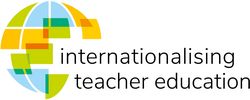2022 International Winter School
Diversity in the Classroom: From Theory to Practice
The DAAD Winter School is concerned with hands-on approaches for embracing diversity in the classroom. Moving from theory to practice the school will be led by teachers and representatives of all four partner universities of the DAAD project: the University of Groningen and NHL Stenden (Netherlands), Nelson Mandela University (South Africa) and the University of Oldenburg (Germany). There’ll be a group of teacher education students attending the school in person while others can attend online.
07 November Decolonising education and social justice imperatives
Welcome & Registration
Opening
Welcome Address
Julia Wurr & Tina Grummel UOL, Heloise Sathorar NMU, Dik Maandag RUG
Session 1: What does it mean to decolonise our classrooms? An introduction to key concepts
An introduction of the key concepts and ideas behind what it means to decolonise a classroom.
Dr. Iva Pesa (RUG)
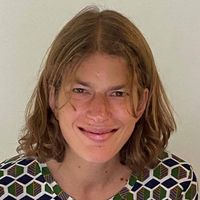
Iva Pesa is an Assistant Professor in Contemporary History at the University of Groningen. She specialises in the social and environmental history of Central Africa. Currently, Iva is the Principal Investigator in the European Research Council Starting Grant “Environmental Histories of Resource Extraction in Africa: Understanding Cultural and Political Responses to Environmental Transformation”. She teaches a range of courses on environmental history and African history and she is the coordinator of the MA specialisation Un/Sustainable Societies in Past, Present and Future. Recent publications include, “A Planetary Anthropocene“ and “Decarbonization, Democracy and Climate Justice”.
Dr. Rachel van der Merwe (RUG)

Rachel Lara van der Merwe is an assistant professor in the Centre for Media and Journalism Studies at the University of Groningen in the Netherlands. Her research explores the intersection of digital media, national identity, ecopolitics, and coloniality—particularly within South Africa and the Global South. Originally from Cape Town, South Africa, she received a Ph.D. in Media Research and Practice from the University of Colorado Boulder and holds an MA in Cultural Studies, with a concentration in media studies, from Claremont Graduate University.
Session 2: Implicit Biases and Teachers as Transformative Intellectuals
Our session contributes to creating an awareness of the implicit biases that inform (and are reproduced by) the everyday practice of teachers; on a theoretical level, it introduces students to the concept of situated knowledge and reflects on the positionality of the teaching subject in the classroom. On this basis, our session discusses the notion of teachers as 'transformative intellectual'. We ask what teachers should be equipped with to become agents of hope and change. We also look at how teachers can employ transformative learning to counter biases and contribute to social transformation.
Dr. Heloise Sathorar (NMU)
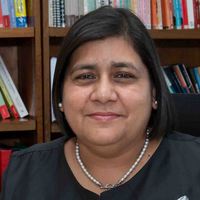
Dr Heloise Sathorar is the Head of Department for Secondary School Education (PGCE and BEd SP & FET) in the Faculty of Education at the Nelson Mandela University. Her research interest includes critical pedagogy, teacher education, higher education and critical community engagement. She has also done research in Accounting Education, and Entrepreneurship Education. Her most recent work is: Decolonizing the colonized mindset: Reflecting on lecturer dispositions to decolonize teacher education (JOE).
Prof. Dr. Martin Butler (UOL)
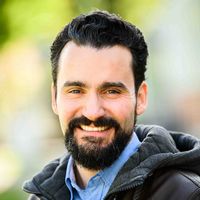
Martin Butler is Professor of American Literary and Cultural Studies at the University of Oldenburg, Germany. His research centers on popular culture and its mobilities, with a particular focus on popular music in a range of different historical and regional contexts. He is also interested in cultural representations of migration and diversity and in cultures of participation, specifically in new media environments.
Session 3: Education for all. Case analysis
Prof. Cina Mosito (NMU)

Prof Cina Mosito is an Associate Professor in the Faculty of Education at Nelson Mandela University. Her research interests include Teacher Education, Inclusive Education, and Educational Psychology. She facilitates the latter two subjects to undergraduate students while also supervising research projects of postgraduate students in these two areas. She is one of the contributors in a British Council South Africa and Department of Basic Education national project called Teaching for All that has developed Inclusive Education curriculum and material for initial and on-going teacher development programmes.
Session 4: Decolonising the arts
Two scoops of R&B in a cone with a soft jazz coating, please! – The session “Decolonizing the Arts” challenges West-centrism and elitism in music and dance education, and raises awareness of the need to re-think how we teach the arts in a culturally diverse setting so that different knowledge systems and aesthetics may receive recognition of equal worth. Specific examples of how to decolonize education will also be translated into practice.
Prof. Dr. Mario Dunkel (UOL)

Professor for Music Education at the University of Oldenburg.
Research interests: transcultural music education; links between music and politics; research on culture and music of jazz and popular music; popular music and the rise of populism.
Dr. Marelize van Heerden (NMU)

Dr Marelize van Heerden lectures Dance education, Music education and Philosophy of Education at the Faculty of Education, Nelson Mandela University, South Africa. She holds a Master’s Degree in Music and a Doctorate in Education. Her doctorate regarded the potential of dance education to promote social cohesion in South Africa. Dr van Heerden also studied Cultural Sociology at Masaryk University in Czech Republic for 18 months, made possible by a European Union scholarship programme. Her research interests include dance education, training teachers for the multicultural classroom, decolonisation, ideas of Self in relation to the Other, recognition of dignity, nation building and peace education.
Dr van Heerden recently won both Teacher of the Year and Emerging Researcher of the Year Awards at the Faculty of Education, Nelson Mandela University. Marelize is also a professional musician, cabaret artist and choreographer. She had her own modern dance studio (AIDT) and was the official choreographer of the internationally acclaimed Nelson Mandela University choir (2005-2017), who won the traditional section of a World Choir competition in Austria with her choreography.
Session 5: Tensions between Theory and Practice: Summary, Discussion and Reflection
Prof. Dr. Julia Wurr (UOL)

Julia Wurr is Junior Professor for Postcolonial Studies at the Institute for English and American Studies at the University of Oldenburg, Germany. Her current research project “Procreation and the Postcolonial” focuses on the aesthetic and ideological dimensions of natalism and anti-natalism in postcolonial fiction. Julia has also done research on Neo-Orientalist forms of Othering as well as on the Postcolonial Middle East and North Africa Region, and she is interested in the relationship between identity and inequality in Postcolonial Theory.
Welcome Dinner
With welcome address by Dr Muki Moeng NMU & Prof. Dr. Karsten Speck UOL
08 November Visiting a local school and concept workshop
Students:
9.30 to 12 pm
Visiting Helene-Lange-Schule
Visiting Helene-Lange-Schule, a comprehensive secondary school for grades 5–13 in Oldenburg including lunch at the school’s cafeteria
Accompanied by Katharina Kaschel (DIZ)
2 to 3 pm
UOL Campus Tour
Steering Committee (teachers only):
9 to 2 pm
Visiting Helene-Lange-Schule
Small group of teachers joins the students visiting Helene-Lange-Schule, a comprehensive school for grades 5–13 in Oldenburg (Helene-Lange-Schule)
Including lunch at the school’s cafeteria
Accompanied by Katharina Kaschel (DIZ) and Karolina Dymek (International Office)
2 to 6 pm
Concept Workshop with RUG, UOL, NMU, NHL
UOL Campus Tour
4 pm
Guided by Aikaterini Tounousidi
09 November: Cross-cultural teacher education. Methodologies
Session 1: Teaching Across Borders III
Heloise Sathorar NMU, Alex van den Berg RUG, Till-Sebastian Idel, Katharina Kaschel UOL & local teachers from Oldenburg, Gqeberha and Groningen
Dr. Heloise Sathorar (NMU)
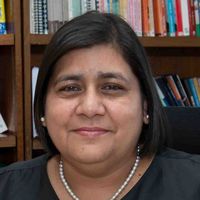
Dr Heloise Sathorar is the Head of Department for Secondary School Education (PGCE and BEd SP & FET) in the Faculty of Education at the Nelson Mandela University. Her research interest includes critical pedagogy, teacher education, higher education and critical community engagement. She has also done research in Accounting Education, and Entrepreneurship Education. Her most recent work is: Decolonizing the colonized mindset: Reflecting on lecturer dispositions to decolonize teacher education (JOE).
Dr. Alex van den Berg (RUG)

Alex van den Berg is a teacher educator for Chemistry at the University of Groningen. He is also a secondary school teacher in Groningen and works for a consortium of schools on the theme of “active learning”. He coordinates a group of teachers who are doing evidence informed research in their schools.
Prof. Dr. Till-Sebastian Idel (UOL)

Professor of School Pedagogy and General Didactics
School of Educational and Social Sciences
Department of Educational Sciences
The focus of my empirical research is on practices of teaching, school and classroom change in development processes in context with changing educational policies and especially in progressive schools, and the embedded professionalization of teachers. My research is based in theories of practice and theories of subjectivation. I’m using methods of qualitative research.
Katharina Kaschel (UOL)

Katharina Kaschel, Assistant to Study and Teaching Coordinator, Geschäftsstelle des Zentrums für Lehrkräftebildung – Didaktisches Zentrum (Centre for Teacher Education), University of Oldenburg, Germany
Session 2: Teaching across cultures. An exploration of sustainable learning in foreign language education
Against the backdrop of John Hattie`s meta-analysis of “what actually works in education” (2012), the workshop sets out to explore successful and sustainable teaching methods transcending national cultures and traditions.
Following an overview of evidence-based research in the field, Drama in Education will be presented as an example of engaging and inspirational teaching with student activation and involvement at the heart of the planning process.
Dr. Sylke Bakker (UOL)
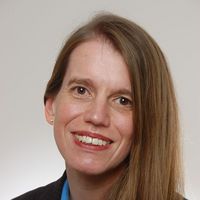
Teaching Fellow at the Department of English and American Studies
My academic focus lies on EFL teaching, particularly against the backdrop of evidence-based teaching and learning. Another field of interest is that of diversity education and pluralistic approaches in more general terms. In my teaching, I make an effort to put relevant literature as well as current research to the test by focusing on the viability of specific content, tasks or methods. Student involvement, critical discourse and feedback are indispensible when pursuing this joint goal.
Dr. Logamurthie Athiemoolam (NMU)

Professor Logamurthie Athiemoolam is an Associate Professor in the Faculty of Education at the Nelson Mandela University in Port Elizabeth, South Africa, where he prepares pre-service teachers to teach English at home and first additional language levels. He also presents education modules focusing on issues and challenges in South African education to undergraduate students and language teaching and language across the curriculum modules to postgraduate students. In the presentation of his modules he uses drama pedagogy as a strategy. At postgraduate level he has already supervised a number of Honours, Masters and Doctoral students with their research projects in the fields of language and general education, to completion. His fields of research are language teaching, education, drama-in-education and diversity pedagogy.
Session 3: Sensitive Language Teaching
Embracing linguistic diversity in the classroom (Mdzanga)
The use and standardisation of dialects to promote a language (Somlata)
Dismantling racial, cultural, and gender stereotypes through language in the classroom (Moeng)
Prof. Nokhanyo Mdzanga (NMU)
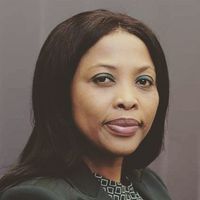
Nokhanyo Nomakhwezi Mdzanga is an Associate Professor and deputy dean in the Faculty of Education at Nelson Mandela University. Her area of expertise is in language education, in particular, multilingualism and the teaching of English to second language speakers and isiXhosa to third of fourth language speakers.
Dr. Zakhile Somlata (NMU)
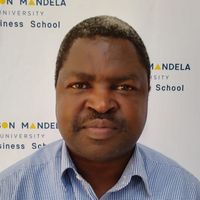
Dr Zakhile Somlata is a Senior Lecturer at the Nelson Mandela University. He is responsible for isiXhosa teacher education for Secondary School Education in the faculty of Education. His research interests include language policy in higher education, multilingualism, peace linguistics for social justice, isiXhosa teacher education and transformative pedagogy for peacebuilding in education.
Dr. Muki Moeng (NMU)
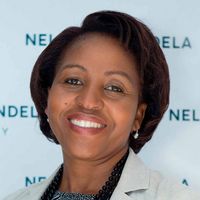
Dr Muki Moeng is Executive Dean in the Faculty of Education at Nelson Mandela University. She is Chair of the Faculty of Education Dean’s Forum and a member of the Council on Higher Education. Her research interests are in the scholarship of teaching and learning, school-based learning, social justice and humanising pedagogy.
Session 4: Sensitive Language Learning
Dr. Nadia Gerritsen (RUG)

Nadia Gerritsen is a Teacher Educator of English Foreign Language learning at the University of Groningen in the Netherlands. She specializes in the practical application of intercultural competence and engagement theories in the EFL classroom.
Dr. Robert-Jan Smit (NHL)
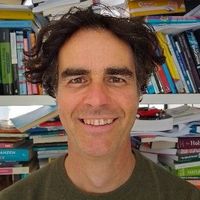
Robert-Jan Smit works at the department of English at NHL Stenden University of Applied Sciences in Leeuwarden and Groningen, the Netherlands. After having taught in the IB’s Middle Years Programme (MYP) for more than 20 years, he currently is a teacher trainer at both the bachelor and the master programme where he takes a special interest in linguistics and didactics. He loves to play around with language and he often tries to be as punny as can be.
Session 5: Using Participatory Action Learning and Action Research to develop School Improvement Plans in Community Schools
This study makes methodological contributions by exploring the perceptions of multiple stakeholders on the use of Participatory Action Learning and Action Research (PALAR) to collaboratively develop School Improvement Plans in Community schools. This multistakeholder collaboration was made possible by the Centre for the Community School at Nelson Mandela University whose mission is to interact with multiple stakeholders through collaborative processes of teaching and learning, engagement, and scholarship.
Noluvo Rangana (NMU)
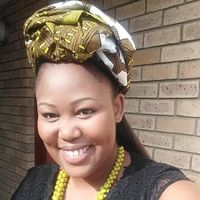
Noluvo Rangana is a PhD candidate in the faculty of Education at Nelson Mandela University. Her research interests include Critical Participatory Action research, Participatory methodologies, Critical pedagogy, Community engagement, Community Schools, Diversity and Participation, and Community development. She is currently co-writing a book chapter on Postgraduate research providing an African epistemology on Participatory Action Learning and Action Research. Noluvo is an emerging scholar, a mother and she holds a Masters’ degree in Development studies.
10 November Excursion to the Netherlands (University of Groningen)
Departure 8.30 am
Depart from Oldenburg Main Station (ZOB) to visit our Partner University in the Netherlands (bus)
City tour of Groningen
Who shaped you? A decolonial workshop on reflexivity and syllabi
An interactive workshop wherein participants will critically reflect on the curricula that have shaped them as teachers and on the experiences and perspectives that they bring with them into the classroom.
Note: Please bring one or two syllabi/course guides from classes you have taken during your recent education. A device with which you can search the Internet will also be helpful.
Dr. Iva Pesa (RUG)
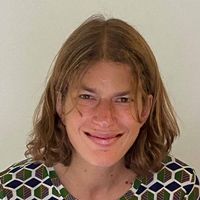
Iva Pesa is an Assistant Professor in Contemporary History at the University of Groningen. She specialises in the social and environmental history of Central Africa. Currently, Iva is the Principal Investigator in the European Research Council Starting Grant “Environmental Histories of Resource Extraction in Africa: Understanding Cultural and Political Responses to Environmental Transformation”. She teaches a range of courses on environmental history and African history and she is the coordinator of the MA specialisation Un/Sustainable Societies in Past, Present and Future. Recent publications include, “A Planetary Anthropocene“ and “Decarbonization, Democracy and Climate Justice”.
Dr. Rachel van der Merwe (RUG)
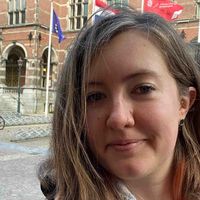
Rachel Lara van der Merwe is an assistant professor in the Centre for Media and Journalism Studies at the University of Groningen in the Netherlands. Her research explores the intersection of digital media, national identity, ecopolitics, and coloniality—particularly within South Africa and the Global South. Originally from Cape Town, South Africa, she received a Ph.D. in Media Research and Practice from the University of Colorado Boulder and holds an MA in Cultural Studies, with a concentration in media studies, from Claremont Graduate University.
11 November: Inclusion and digitalisation
Session 1: Re-conceptualising and co-creating a method module in the Faculty of Education during a pandemic
To become an effective 21st-century teacher, you must be willing to teach how your Generation Z students learn.
Dr. Badroen Ismail (NMU)

Badroen Ismail is a trained economist, SAQA-accredited assessor, and social research scientist with a PhD in Islamic Finance obtained from the Nelson Mandela Metropolitan University. Under the auspices of various research units, he constructed various econometric models which informed provincial policy decisions. Lately his research interests focus on the use of technology in the classroom and within the Faculty of Education.
Session 2: Report on the Erasmus+ ENGaGE project
A task-bank for high-school learners of English and German that allows for inclusion of learners with special educational needs, specifically dyslexia.
http://engage.uni-miskolc.hu/index.php/self-study-course/
Prof. Dr. Marije Michel (RUG)
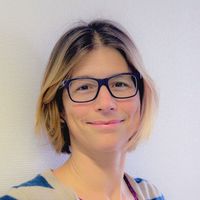
Prof Marije Michel is chair of Language Learning within the Department of European Languages and Cultures (ELC) at Groningen University in the Netherlands. Born and raised in Switzerland by Dutch parents, she studied Dutch and German at Utrecht University and the Free University Berlin. In 2011 she defended her Phd thesis at the University of Amsterdam based on a research project focusing on Turkish and Moroccan learners of Dutch as a second language (L2). After a teaching fellowship at Tubingen University and a postdoc at Mannheim University, Marije moved to the UK where she became a lecturer for L2 learning and teaching at Lancaster University. In 2018, Marije joined Groningen University where she now supervises the teaching of eight languages taught within the ELC programme: Dutch, German, English, French, Italian, Russian, Spanish and Swedish.
Marije's research and teaching focuses on cognitive and interactive aspects of second language acquisition and task-based language pedagogy. Her recent work looks into teaching material and task design; uses eye-tracking to investigate cognitive processes of L2 writing, in particular, in digital contexts (e.g., text chat); and examines student motivation to learn other languages than English (LOTE), specifically German and French in the Netherlands.
Session 3: Report on the EuLe-F project
We are digitalizing the diagnostic instrument EuLe 4-5 (Meindl & Jungmann, 2019a) and advance it to a process diagnostic tool for early literacy competencies in the transition from elementary to primary school. Building on this, we develop adaptive intervention possibilities for the areas of narrative competencies, concepts of print, phonological awareness, word awareness, script awareness and graphemic knowledge. The aim of the present project is the promotion of diagnosis-led, evidence-based early literacy intervention in elementary and primary school. To optimize the educational diagnostic process, we will consider the estimations of pedagogical professionals and teachers before implementing them into practice.
Prof. Dr. Tanja Jungmann (UOL)

Affiliation: School of Educational and Social Sciences
Department of Special Needs Education and Rehabilitation
Language and Communication and its special needs education under special consideration of inclusive educational processes
Academic Focus:
- Professionalization of kindergarten and school teachers in inclusive settings
- Evidence-based (early) prevention and intervention
- Diagnosis und developmental advancement of competencies in language, reading and writing competences (early literacy)
Dr. Roberta Nicosia (UOL)

Affiliation: School of Educational and Social Sciences, Department of Special Needs Education and Rehabilitation, University of Oldenburg.
Research Associate: Projekt TiT (Teilhabe im Transitionsprozess); Special needs Education for individuals with an intellectual disability (ID)/ developmental delay
Research Associate: Project EuLe-F (Erzähl- und Lesekompetenz erfassen und fördern); Language and Communication and its special needs education under special consideration of inclusive educational processes
Academic Focus
- Digital Inclusion
- Human rights and Rights of Persons with disabilities
- Web Accessibility
- Digital Universal Design
- Alternative and Augmentative Communication
- Inclusive Research Methods
- Early Literacy Support
Session 4: Opportunities in Diversity
We will engage in a conversation about opportunities that diverse spaces offer for Teaching and Learning. This discussion will draw on the lived experiences of students and colleagues. Often discussions and presentations address challenges around diversity. However, we will shift the angle of the conversation. Using the lens of the asset-based approach, we will discuss opportunities for diversity within the classroom. The discussion is guided by the following question: Diverse teaching and learning spaces: what opportunities lie within and beyond?
Prof. Cina Mosito (NMU)
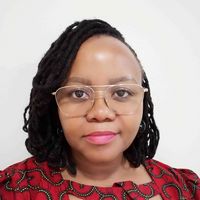
Prof Cina Mosito is an Associate Professor in the Faculty of Education at Nelson Mandela University. Her research interests include Teacher Education, Inclusive Education, and Educational Psychology. She facilitates the latter two subjects to undergraduate students while also supervising research projects of postgraduate students in these two areas. She is one of the contributors in a British Council South Africa and Department of Basic Education national project called Teaching for All that has developed Inclusive Education curriculum and material for initial and on-going teacher development programmes.
Sanet Deysel (NMU)

For the past seven years, I have been lecturing in the Faculty of Education at Nelson Mandela University, South Africa. My academic interests are in the field of Inclusive Education, as well as Barriers to Learning. I have a distinct interest in learner support within the educational domain. I am also interested in the support available for teachers in the education setting and different educational contexts, especially in their accommodation of learners presenting with barriers to learning. Community schools and their approach to engagement, participation, and collaboration with multiple stakeholders, together with the underlying principles thereof, is another field of interest and research.

